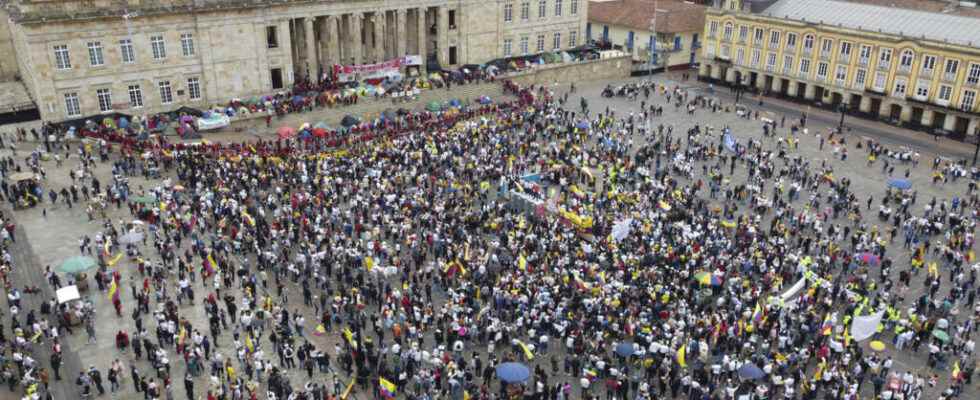In Colombia, it was the turn of opponents to the reform of the health system to pound the pavement yesterday. And it is clear that these demonstrations against the reform were more massive than those in its favor, a day earlier.
The Colombian newspapers are unanimous this Thursday, February 16: “ Thousands of people took to the streets in 31 Colombian cities to reject the reform wanted by President Gustavo Petro, making the pro-government mobilization pale in comparison “, summary El Colombiano. ” On Tuesday, during demonstrations for health reform, the Head of State called on Congress to listen to the will of the people in the street,” the daily continues. “A call that came back to him like a boomerang, since the next day, the same streets were invaded by opponents and in a much more massive way “.
New bill to lead to the dismantling of drug cartels
While the health reform has not yet been voted on, another bill is already causing a new controversy. Gustavo Petro is obviously on all fronts at the same time. The other bill concerns new legal provisions to overcome drug cartels and organized crime and ultimately lead to ” total peace in Colombia, the leitmotif of the left-wing president.
According The Spectator, members of criminal organizations and drug traffickers would have two years to comply with the new legislation if it were adopted. In civil courts, they should admit their responsibility for the crimes, reveal the location of missing persons and reveal the assets accumulated through illicit activities. These culprits would then be sentenced to 6 to 8 years in prison followed by four years of a rehabilitation program. They could keep 6% of their property, the rest of their fortune to be used to compensate their victims.
Criminals who are part of a hierarchical and non-politicized organization would be eligible to participate in this judicial device. Members of the ELN guerrillas, for example, would be excluded from the programme. Just like anyone who has committed serious crimes.
Venezuela: the opposition has set a date to elect its presidential candidate of 2024
The primaries will take place on October 22, reports Efecto Cocuyo. ” Candidates can make themselves known until June 23. They will then be campaigning from August 22 until October 20. “. The news site also reports that the Venezuelan opposition will ask international observers to attend the primary process to ensure a transparent ballot. The editorialist ofEl Nacional believes that the organization of these primaries, ” which will be open to every Venezuelan of voting age, represent a real challenge“. The opposition will have to remobilize a population largely disillusioned by years of serious political, social and economic crisis and by the inability of the opponents of the socialist regime to improve daily life”.
Haiti: Grand’Anse under the influence of gangs, partly from Port-au-Prince
The department of Grand’Anse is located in the southern peninsula of Haiti. It is known, as the formula AyibopostFor “its greenery and a relatively peaceful life“. However, Grand’Anse has also begun, “an accelerated descent into insecurity“. According to the investigative journalism site, gangs from Port-au-Prince join local criminals. Terrorized, the inhabitants report cases of kidnapping, hold-ups, thefts and even assassination.
Ayibopostpoints out that “justice is almost non-existent in the department“: “the town hall of Jérémie (capital of Grand’Anse) is dysfunctional. Beaumont and Bonbon, two towns which together have around 35,000 people, have not had any functional police stations for four years. The department as a whole is home to over half a million people. Less than 200 police ensure their safety“.
AndAyibopostcontinues: “Fuel is unavailable at gas stations and petroleum products continue to sell through the streets at exorbitant prices. There has been no electricity in the department for nearly three years. Nocturnal activities are paralyzed. As a result, the citizens, left to their own devices, return home very early“.
